Our Services
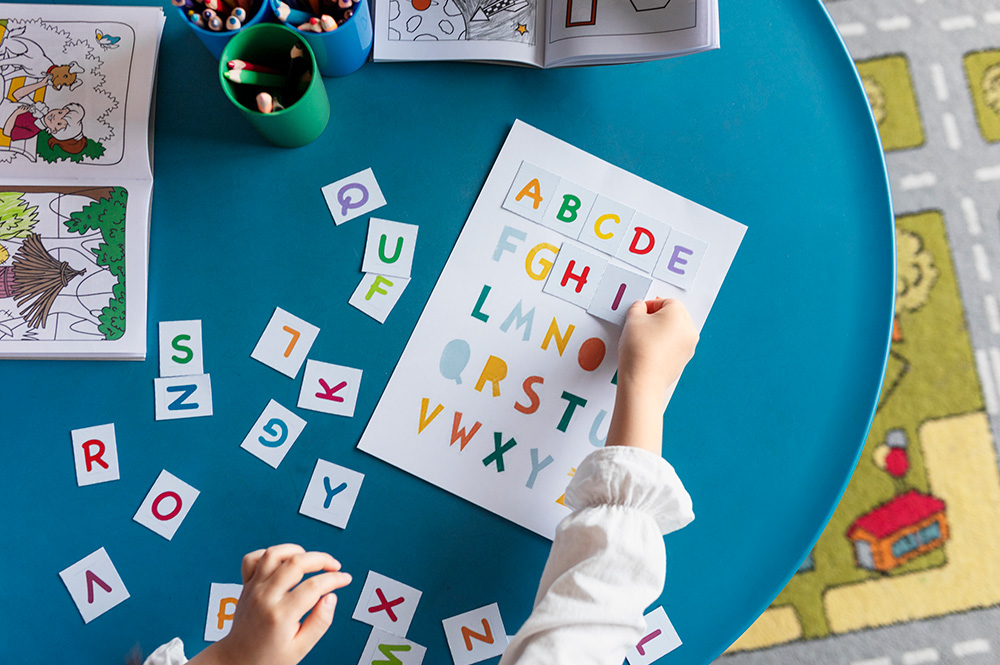
English
Storytime is a bilingual daycare center where children are immersed in the English language and learning happens in the most natural way. We use the 50% immersion approach. In our language immersion daycare, our native English speakers will only speak English throughout the day for everything, from talking one on one with children to circle time. Our services such as music and movement, cooking, messy play, gardening, art classes and dramatic will be done in English.
We believe in the fun and interesting educational experience that an English immersion childcare center can offer. Your child could see first-hand the fun of English in a unique setting when you enroll them here. You know how important early childhood education and child development are, so why not make their daycare or preschool an enjoyable and immersive experience?
Learning two languages at a young age has shown to help the brain function in areas other than language.
Children who are bilingual tend to have higher capacities for memory and attention. When children are exposed to, and practice, more than one language in early stages, brain activity is increased. Thus, development is more enriched.
Bilingual children have also shown to adjust better to changes in their environment. In learning two languages, the brain is exposed to two different thought and cultural constructs. This trains children in receiving new information and adjusting their approaches based on the context, much like when forming a sentence in one language vs. another.
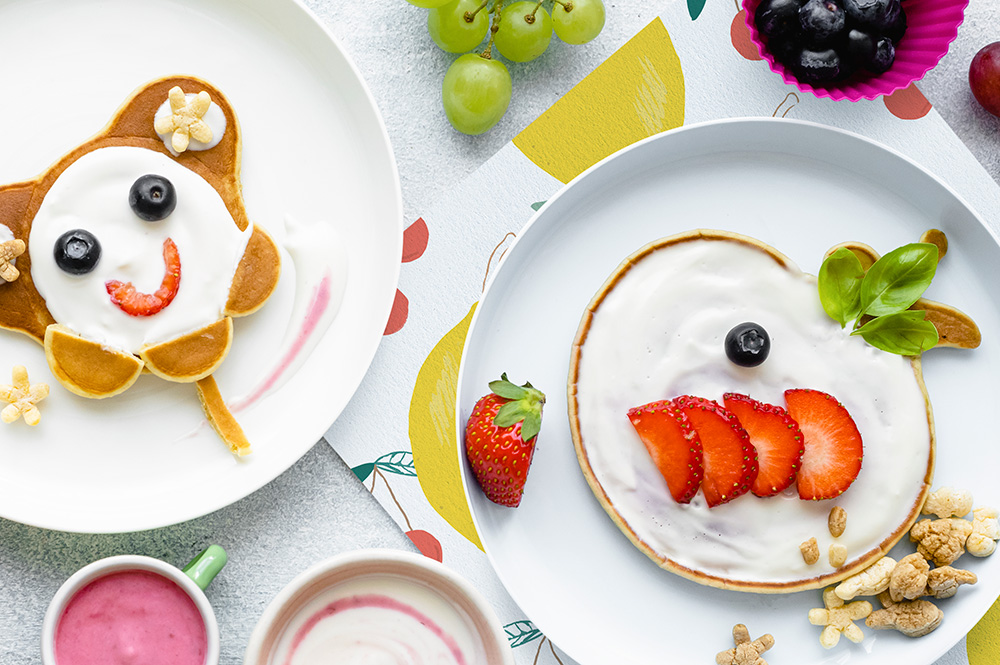
Meal Time
In our school mealtime will be held in our dining area. We believe that food is not only to fill a child’s belly, but a child’s soul through the ritual of eating together. Along with nutritional and language opportunities, children practice social skills, develop table manners, attitudes towards food, self-esteem and independence.
We follow consistent times for each meal. Children need predictable patterns. Knowing when to expect breakfast, lunch, and snack helps set the stage for their day. A routine of washing their hands, setting the table, and knowing what to expect during the mealtime will make the meal run more smoothly. When children use child-sized utensils, cups, plates and serving dishes, it sets them up for success when serving themselves.
During mealtime, our teachers sit with the children, and interact with them. they talk about the food they are eating; they Help the children learn to serve themselves and they take the chance to introduce table manners. All of these actions help children learn how to socialize during the mealtime and it sets the tone for the entire meal. In our school we encourage healthy eating habits and manners by modeling them for our students.
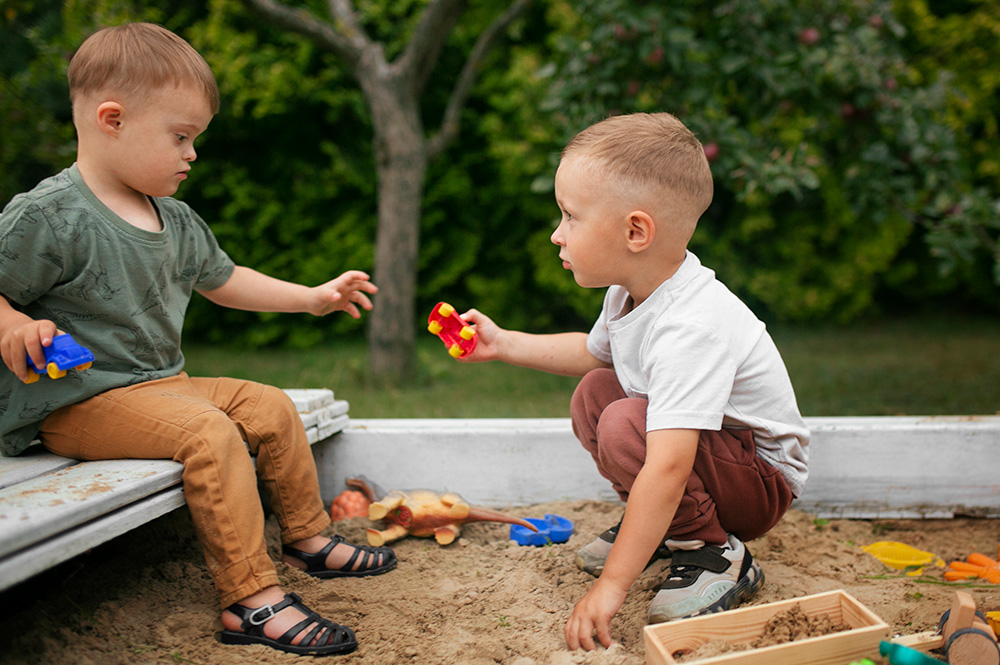
Outdoor Classrooms
When the weather permits, we take our classroom outdoors. We believe outdoor classrooms help children improve engagement and attention. It offers them fresh focus and creates a larger and more versatile free-flow space.
We believe outdoor classrooms and learning environments should be as natural as possible and include engaging and exciting activity stations for children. The types of activities and educational subjects we incorporate into the outdoor learning environment will be mostly dependent on the ages of the children using the space. These are some subjects that will be integrated into our outdoor classrooms.
A Math station: Children will use natural objects, such as acorns, leaves, pebbles, and sticks, and outdoor accessory kits for activities that encourage younger children to learn how to count, add, subtract, and recognize shapes.
An art station: Children will be encouraged to draw pictures in the dirt with a stick or use an outdoor easel to draw or paint the animals and plants they see in the space. Sidewalk chalk is another great art alternative for helping kids get creative in their outdoor classroom.
A Science Station: There are a variety of science activities and topics children will enjoy learning about outside, including weather and climate, plants, and animals, and light and shadow. In the science section there will be a thermometer, rain gauge, and bird feeder among other items that are age appropriate. Finally, there will be an outdoor sand and water table.
A Literacy Station: An outdoor classroom is a great place for children to learn new vocabulary words. Treehouse is a bilingual daycare where literacy is very important. Therefore, note cards with new vocabulary words that correspond to objects will be posted in the outdoor classroom around the space. This will help children learn new words faster and associate them with a variety of learning experiences. Reading is another literacy activity children of all ages can enjoy in the outdoor classroom. Blankets, chairs, and outdoor pillows will be placed in the space to encourage kids to enjoy a good book and soak up the sunshine.
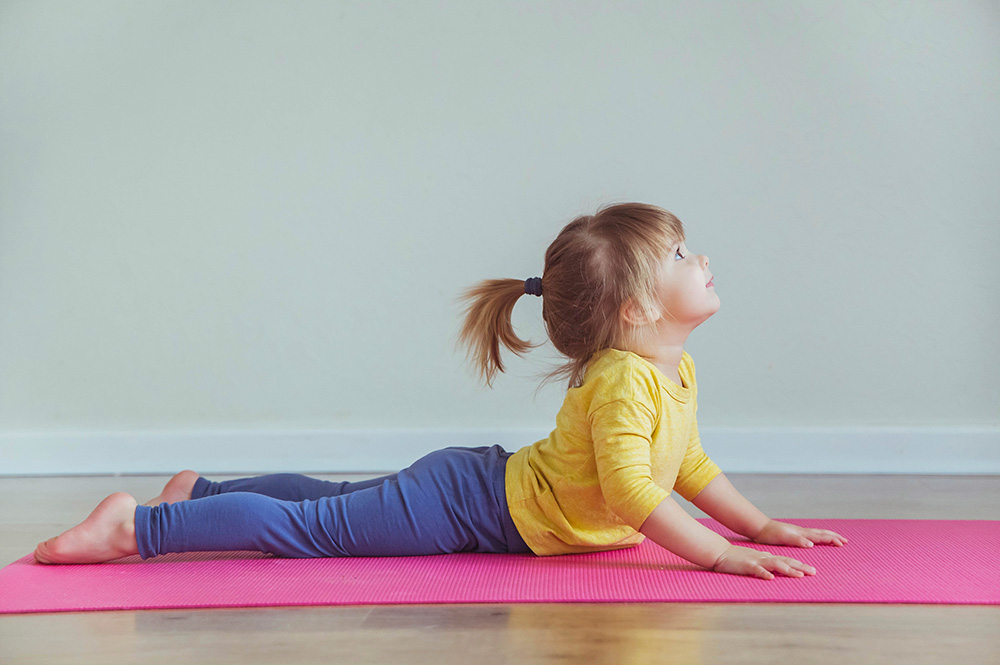
Kids Yoga
Our experienced yoga instructor will guide children by speaking to them only in English. She will use music, stories, imaginative play, and games to introduce yoga to young children in a fun and age-appropriate way. Children will learn yoga poses, breathing exercises, and relaxation techniques to help improve body awareness, concentration, and emotional self-regulation skills.
During yoga class some children will observe and listen rather than “do” yoga. Some children won’t be confident or comfortable enough to practice yoga in front of other people. In our classrooms participation is not forced because we believe it will be damaging to the child. Instead, we accept other forms of participation. For example, “some of our students will be working hard watching and listening while others will be trying out the poses. We encourage our students to participate in their own way. We avoid from focusing on the physical form and we focus and reward energy and effort.

Dramatic Play
Dramatic play is a great way for children to develop their imagination and creativity. Children also have the freedom to express their feelings through dramatic play. Our school will provide students with props, toys, and costumes for children to use.
Our English-speaking instructor will use both types of dramatic play: structured and unstructured. Unstructured dramatic play gives children the freedom to choose their own roles and play scenarios. Structured dramatic play, on the other hand, has specific directions to get them started. Children are presented with a pre-determined scenario and then must make choices and discover solutions. Both structures give the students the opportunity to act out scenarios from the real world and fictional lands alike.
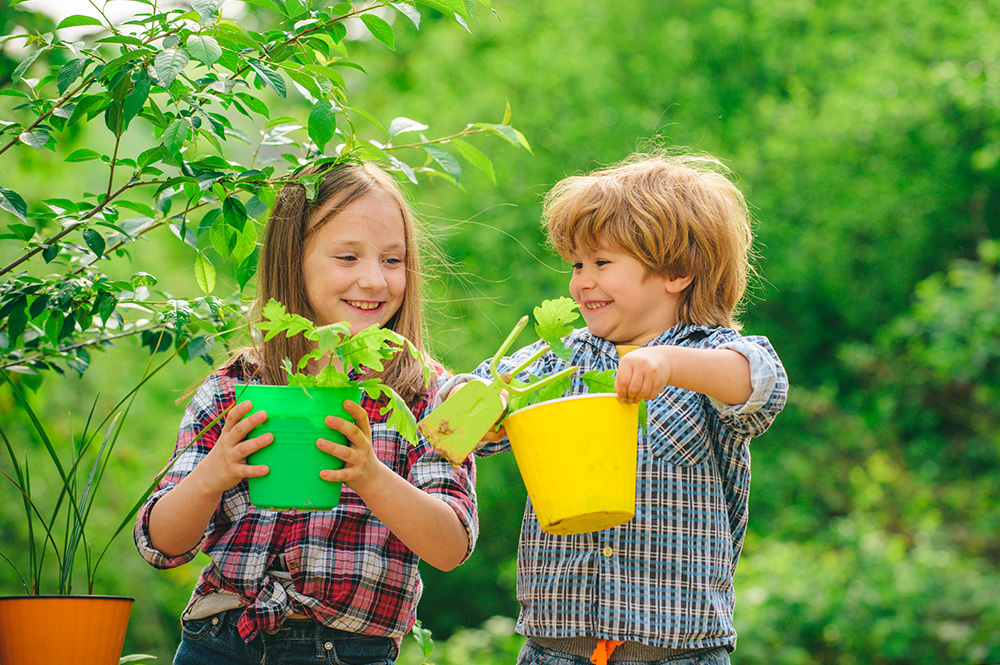
Gardening
Children love being outdoors and enjoy digging in the soil, getting dirty, creating things, and watching plants grow. Therefore, they will learn new skills, have fun, and play by spending time in our garden, tending plants and growing their own food.
Children will all have different expectations and will learn different things in the garden depending on their age group. Younger children will be carefuly supervised by our highly qualified teachers during activities. Suitable tasks for younger children include watering plants, harvesting produce and planting seeds.
Older children are physically capable of handling a greater variety of activities, like digging, carrying, planting, mulching and pruning. Our students will have their own garden space therefore they will have the opportunity to be involved in the planning and design of the garden. Every child will have access to lightweight, easy-to-handle, correct-sized tools, and garden equipment. Our teachers will carefully choose from these actives that will suit each age group.
- Grow interesting plants such as lettuce, tomatoes, pumpkins, and strawberries.
- Plant flowers that attract butterflies, ladybirds and other interesting insects or birds.
- Make a scarecrow.
- Install a water feature, a birdbath or a sundial.
- Set up a worm farm.
- Watering the garden
- Digging
- Picking flowers
- Planting vegetables, fruits and flowers in the correct season
- Feeding the worms and using the ‘worm tea’ from the worm farm as fertiliser
- Picking vegetables and fruits when they are ready to eat
- Preparing healthy food, such as making salads and preparing school lunches
- Craft activities using harvested seeds, plants and flowers
- Composting, recycling and mulching
- Weeding
- Gathering seeds and dried flowers
- Preparing the soil with organic fertiliser
- Replanting and re-potting.
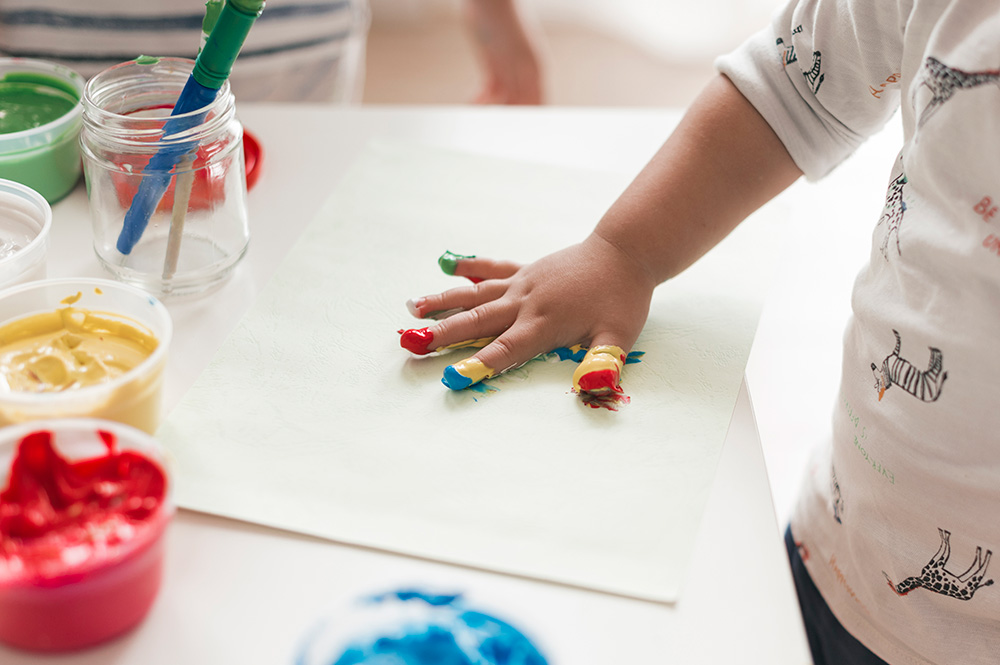
Messy Play
Messy play allows children the freedom to investigate materials. This can include playing with sand and water, digging in mud or investigating shaving foam. Our teachers will try to keep your child clean by providing aprons, overalls and oportunities to wash their hands, but it is impossible to keep young children totally clean without slowing down their important investigations.
Messy play allows children of all ages to use ther hands and fingers. This promotes fine motor skill development. It encourages finger agility, hand and shoulder strength. These skills are all necessary for handwriting in the future. Messy play also helps with body balance and spatial awareness, enhancing gross motor skills. It’s also great for working on hand-eye coordination, which will come in very handy as the child gets older.
It is a well-known fact that the younger age groups love to explore by putting everything in their mouths. That is the reason why our teachers use edible ingredients not only for the babies but older kids as well. We use different kinds of fruits or for painting, edible playdough for sculpting, ice, frozen veggies, colored pasta and many more. This will ensure the safety of our students and most importantly of all they will have so much fun learning.
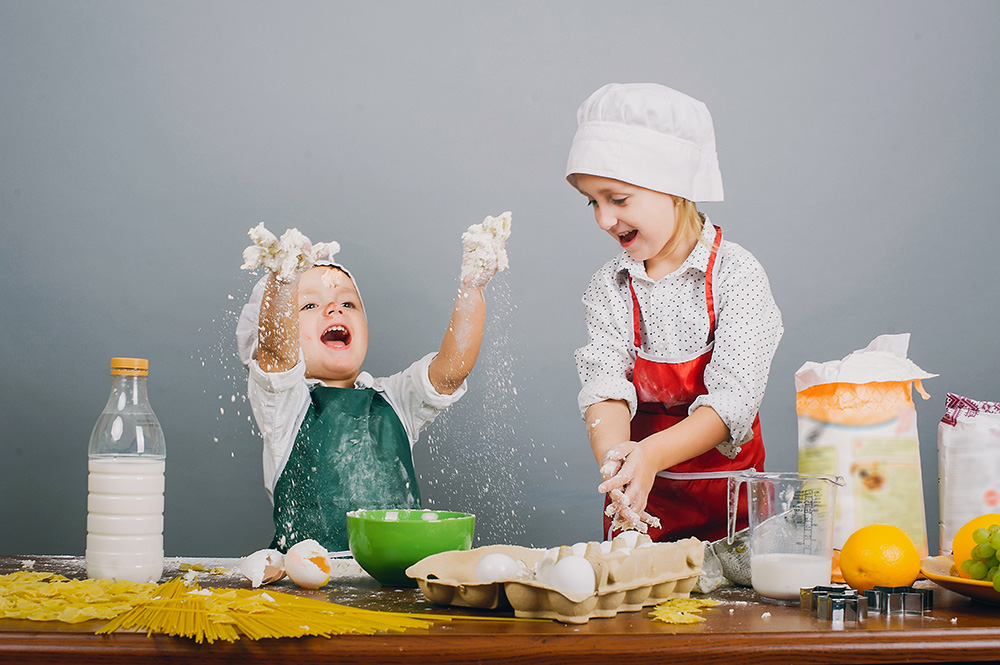
Cooking
The best way for children to learn is through experience which is why in our school we introduce cooking as early as possible. To help our children learn about math, our educators assign simple tasks such as counting fruits or measuring out ingredients like flour. Cooking is also a great way to see science in action! children love seeing how the different ingredients are instantly transformed before their eyes into delicious cookies or a tasty salad freshly picked from our garden.
Our team at Storytime put a lot of time and energy into making sure that all cooking activities are going to be fun for all children and are structured to involve all ages. When cooking with toddlers we ensure that activities are structured in line with a child’s age.
- Two year olds are still developing the muscles in their upper arms. They can be involved in such activities as washing and tearing up green vegetables, scrubbing fruit and vegetables and carrying unbreakable items to tables
- Three year olds are becoming proficient at using their hands and can be trusted with such activities as mixing batter or other ingredients together, pouring liquids, kneading dough, washing fruit and vegetables, serving food, and disposing of trash after cooking.
- Four year olds are beginning to master their fine motor skills. They should be able to measure dry ingredients, juice fruits, peel fruit and vegetables, cut some fruit or vegetables, mix ingredients, as well as setting and clearing the table and cleaning the table after cooking.
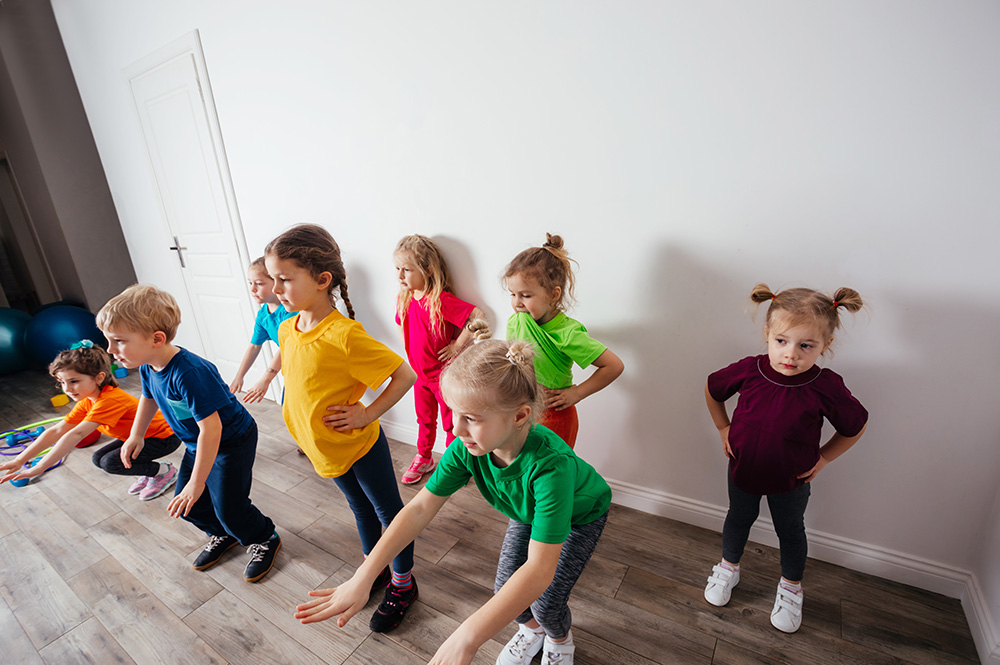
Music and Movement
Patting drums, shaking maracas, stamping feet, clapping hands, banging on drums, singing, and dancing or using music to relax and wind down is used throughout our entire school day. We believe without music and movement a child’s learning is incomplete. It helps children express their feelings, learn to work in groups and develop their imagination and confidence but most of all they love it!!!!
Music and movement are very important for brain development. When children’s arms or legs cross the midsection of the body, both sides of the brain work together which enhance brain connections drastically. This stimulates critical thinking, and problem-solving, Music and movement is full of opportunities for producing stronger brain connections. Children of all ages, receive benefits from music and movement activities. Making and using drums, singing songs, fingerplays, rhymes, dancing to classical music with silk scarves. Story chants ( we are going on a bear hunt) Dance part, Body Part Dancing are some of the activities that will interest our students.
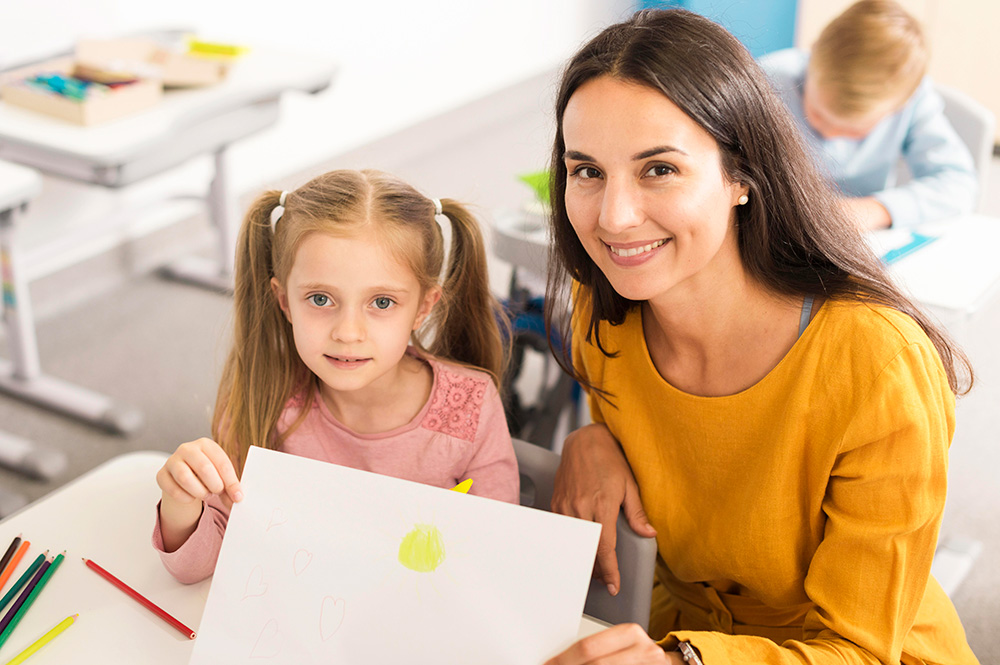
Mommy and me classes
Storytime offers mommy and me classes. We strongly believe that spending quality time with your child is one of the most important things you can do to ensure they grow up to be happy, healthy adults. One way parents have been doing this is enrolling in what’s been traditionally called “Mommy & Me’ classes.
Mommy & Me classes are designed with both parent and child in mind and are meant to enrich the parent-child bonding process through instructional learning. These activities are yoga, art, music, and other creative classes that encourage self-expression.
Our Mommy and Me classes involve movement — whether it’s dancing, yoga, or even free play. Exposure to physical activity at a young age encourages children to value exercise. As they grow older, they’ll continuously build from a foundation of the skills they learn. Besides new skills, these kinds of classes teach children self-control and reasoning, encouraging them to become more comfortable with their bodies and what they can do physically. With more movement comes more independence!
Mommy and Me classes offer opportunities for your baby to learn important communication skills. Whether through sing-a-longs, teacher instruction or even just observing how other parents and babies interact, your child will pick up new vocabulary, learn important social cues, and begin to understand how to follow directions. Through enjoying a new activity together, you and your child will learn how to better communicate with each other.
Babies and toddlers learn best when they use all of their senses. In our Mommy and Me classes we offer learning opportunities that engage as many of the body’s senses as possible. From cooking and music to gymnastics and swimming, pretty much any class you find will encourage your child to use more than just one of their senses. This helps with developmental aspects like fine and gross motor skills, problem-solving, and cognitive growth.
Above all else, you’ll find that Mommy and Me classes offer you the chance to not just watch, but actively take part in your child’s growth and development. In our opinion, there’s no better feeling of satisfaction than that!
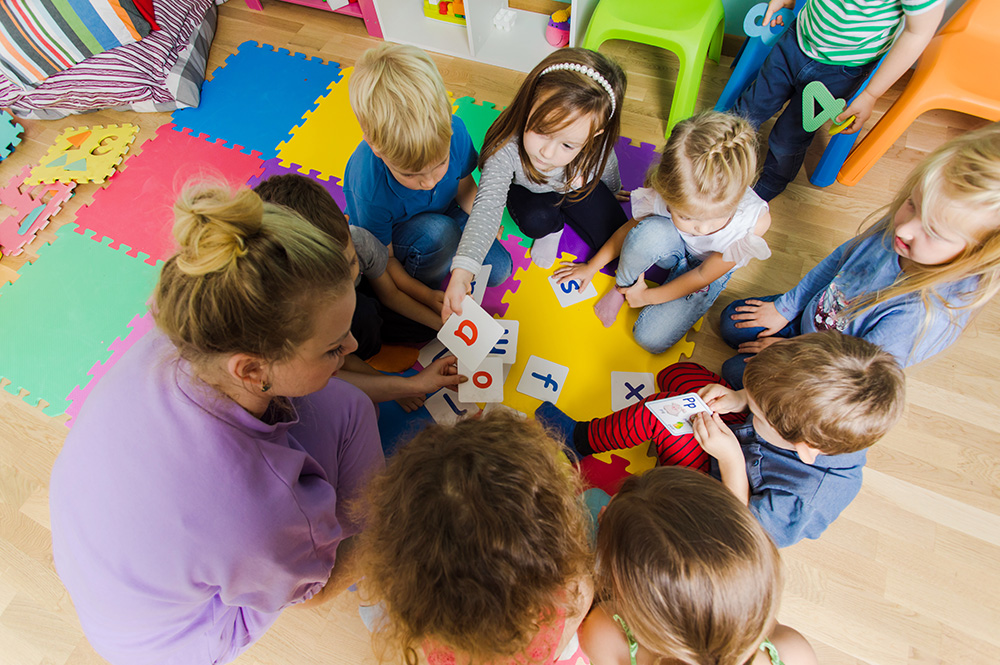
Prep classes
Kids are expected to have a certain set of skills at every stage of the educational journey. You might be wondering if your child has the academic and social-emotional skills necessary to thrive in grade one, as well as what they’re expected to learn by the end of the year.
In kindergarten, many children acquire both academic and social skills through methods such as: hands on and play based learning . When they start elementary school for the first time, your child will have to get used to a different classroom structure and learning schedule amongst other skills. Our highly qualified teachers will help your child to be more confident when entering first grade. We offer prep classes in the afternoon.

Robotics
Whether you have a son who’s in preschool or a daughter that’s going on six years old, Storytime offers robotics classes to children as young as pre-kindergartners can enjoy. Our junior robotics engineering classes use educational kits, Legos, Robots to create a perfect mixture of fun and imagination that can help expand your young child’s creative mind. We introduce students to robot design and computer programming using basic machine principles to create robots capable of performing simple tasks.
Not only do our robotics programs help to establish science, technology, engineering, and math concepts, they also work to build on students’ team-building skills as they work to complete fun challenges. These collaborative skills are essential for student success, no matter what subject they choose to pursue in the future.
Many other advantages include:
- Improved creative thinking skills
- Improved social skills
- Improved problem-solving skills
- Improved computer programming skills
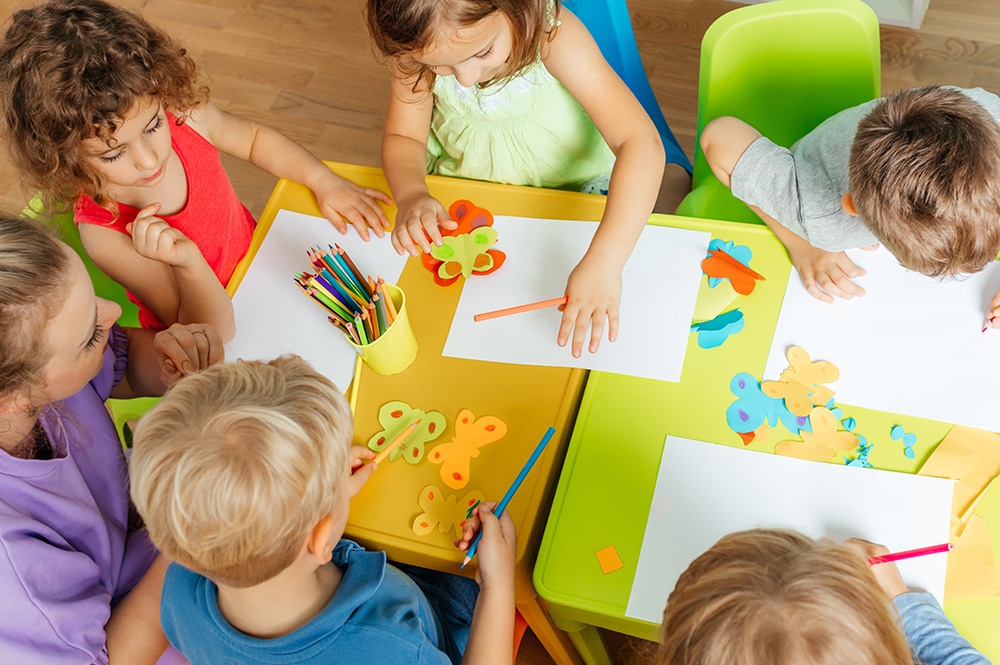
Art class
Storytime enables children to create art by creating an inspiring space. Our art center will look like an artist’s studio, filled with children’s art as well as that of well-known artists. The art center will allow children to feel creative as they will explore materials to express themselves. The art center also allows children to make their own discoveries, either independently or together, and to feel confident in the choices they make.
During art class children will experiment with colors, textures, and art tools. Using safe, non-toxic art materials. They will get messy using their hands to feel and apply paint; scribbling with markers and crayons; painting with sponges, brushes, and other tools; squeezing safe modeling materials; cutting all types of paper products with safety scissors; gluing materials to create something new; and playing with shapes. These types of activities help students to develop fine motor skills and cognitive abilities.




